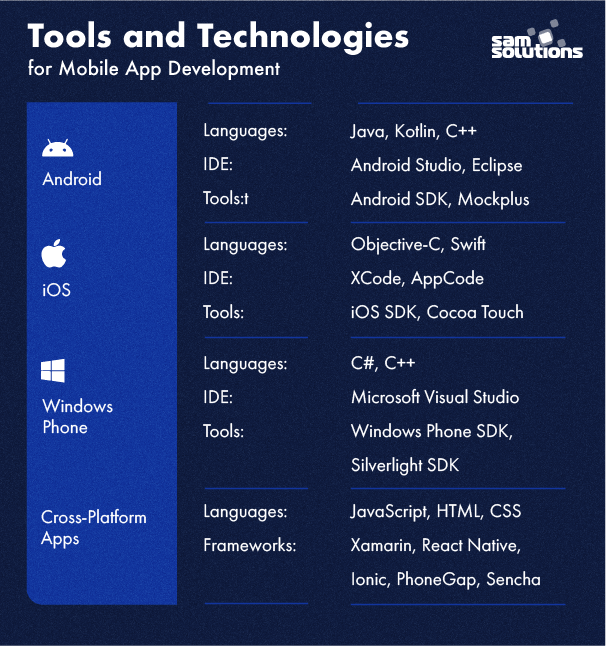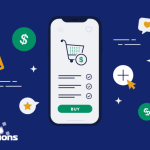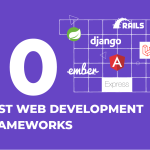A smartphone with dozens of installed applications has become the core symbol of the digital era. Modern businesses must develop mobile apps to win over customers; thus, they get into user smartphones so they are close at hand whenever their products or services are needed.
There are two main approaches to creating applications — native mobile app development and cross-platform mobile app development. The question is how to choose.
In this article, we‘ll tell you about native solutions and their advantages.
Create your mobile app with SaM Solutions to guarantee high user engagement, retention, and satisfaction.
What Is Native Mobile App Development?
This particular development approach is the traditional way of creating applications for each mobile operating system, using different languages, and considering each platform’s peculiarities.
Native mobile apps are built and adjusted exclusively for specific mobile operating systems (Android, iOS, Windows).
If a project requires solutions for several mobile platforms, you will need several development teams to work on it.
Native mobile development uses tools and programming languages that are original for the device and the operating system. Apple, Google, Microsoft and other providers design specific tools, SDK and interface elements for their platforms.
- To create iOS solutions, you need programming languages Objective-C or Swift, environments such as XCode or AppCode, plus iOS SDK, Cocoa Touch and other tools.
- You should use the languages Java, Kotlin, or C++, the environments Android Studio or Eclipse, plus Android SDK, Mockplus and other tools for Android apps.
- To build Windows Phone apps, you need the languages C# or C++, the Microsoft Visual Studio environment, plus Windows Phone SDK, Silverlight SDK and other tools.
A native Android solution will not function on the iOS platform and vice versa.
In contrast, cross-platform mobile solutions are written in universal languages such as JavaScript, HTML, CSS, and frameworks Xamarin, React Native, Ionic, etc. The core feature of cross-platform solutions is platform agnosticism, which means that the software is not tied to a specific platform and is compatible with different devices and operating systems.

The full access to hardware functionality (camera, GPS, voice recorder, audio and video files) and software services (calendar, notifications) make native apps feel like home in target devices.
Another essential feature is that native apps can function in offline mode, while cross-platform solutions require a constant internet connection.
Native mobile solutions are downloaded from respective digital stores — App Store and Google Play.
Five Benefits of Native Mobile App Development
Native apps offer a range of significant benefits that can be decisive for choosing a type of mobile solution.
1. Seamless Performance
When developers create native solutions, they initially optimize them to all specific features of a target platform and leverage all available APIs. Thus, applications get full hardware and OS support and can demonstrate a high level of performance.
Native apps are highly responsive and fast because their target devices download and store all visual and content elements, contributing to the loading speed.
2. Advanced Customization
Native development implies access to all tools and features available in the operating system and devices. For customers, this means flexibility and the ability to create unique solutions according to their needs and desires.
Besides, mobile app testing is much easier for native projects due to a range of built-in automated testing tools. Remote error monitoring allows developers to control errors on user devices and address their causes. As a result, you get an efficient and bug-free product that meets your requirements.
3. Ultimate User Experience
Each mobile platform has unique UI/UX standards. Native app developers stick to these standards, making applications look and feel like an integral part of the operating system.
Such intuitive and interactive solutions enhance the user experience. People can easily interact with a new app because they are familiar with the layout and gestures needed to perform this or that action. Thus, native mobile solutions help companies attract more loyal customers.
4. Security
Data protection comes first nowadays. In this regard, native apps provide better security than cross-platform apps. Why? Hybrid solutions inherit security vulnerabilities from the platforms and browsers they work on. In addition, universal languages used in these apps may also add risks.
Native applications are designed for a single platform, so the data is encrypted within one infrastructure, reducing the number of risks. If you guarantee a higher level of data protection, consequently, you gain the trust of your audience.
5. Instant Updating
When Android and iOS release updates, native app developers can immediately implement new features. Conversely, cross-platform engineers have to wait for additional tools to adjust updates to their solutions. It slows down the process and degrades the user experience.
Immediate access to the most recent features makes the native development approach look more beneficial to customers and end-users.
Native Mobile App Challenges
At present, the majority of mobile apps are created for more than one platform. When developers make a separate native app for each platform, they have to use different tools, APIs, environments and interface design approaches.
Hence, to make three versions of one application compatible with three platforms, you will probably need to hire three separate teams. Your project’s total price may be three times higher, not to mention the delayed time to market.

Mobile Development Considerations
If you can’t decide whether native or hybrid mobile development is better for you and your customers, here are the core questions you should answer:
- What is your timeline?
- What is your budget?
- Is seamless performance critical for your app?
- Are immediate updates critical for your app?
- Is offline mode essential for your app?
You can now check your answers against our table; it will help you decide which approach is the best fit for you.

You see that native development is preferable in terms of better performance and user experience, while the cross-platform approach solves the problem of high expenses and long timelines.
The extensive experience of our mobile specialists may be of great help to your project. Fill in the contact form right now to arrange a consultation.



























 5 Reasons Why Your Business Needs a Mobile eCommerce Application
5 Reasons Why Your Business Needs a Mobile eCommerce Application Using Salesforce to Improve Your Sales Pipeline: Five Tips
Using Salesforce to Improve Your Sales Pipeline: Five Tips Cross-Platform Mobile Development: Five Best Frameworks
Cross-Platform Mobile Development: Five Best Frameworks 10 Best Web Development Frameworks in 2024
10 Best Web Development Frameworks in 2024 How to Develop Custom Accounting Software
How to Develop Custom Accounting Software












 5 Best Tools to Improve Embedded Software Testing
5 Best Tools to Improve Embedded Software Testing Why React and Node.js Are the Top Technologies for Creating High-Performance Web Apps in 2024
Why React and Node.js Are the Top Technologies for Creating High-Performance Web Apps in 2024 10 Best IoT Platforms for 2024
10 Best IoT Platforms for 2024 Top 20 Latest Trends in the Ecommerce Industry in 2024
Top 20 Latest Trends in the Ecommerce Industry in 2024
Hello. Thanks for the article. Are there any new differences between native and cross-platform mobile applications in 2022?
If you create a Game-related app, what do you think the approach should be, native or hybrid mobile development? Also, can you tell me about hybrid mobile development benefits?
Native mobile app development is no doubt trending and demanding development field, and you explained it well the benefits of native thanks for posting such a blog keep updating 🙂
Useful content about native mobile app development. Thankyou for sharing. Great post
A great piece that sheds much needed light on Android App Development Company and its impact on business as there are many new details you posted here. Sometimes it is not so easy to build a “Android App Development Company” without custom knowledge; here you need proper development skills and experience. However, the details you mention here would be very much helpful for the beginner.
Mobile applications are all around and it’s useful to learn how they are created and what types of apps you can use for your business. The key moments are presented in this concise blog post.
Mobile development is an urgent topic today. All companies, no matter what industry, need a mobile application if they want to establish strong relationships with their customers. Native or Hybrid? You can find the answers in this article.
You clearly explain the difference between native and cross-platform mobile applications. I also like that you provide the list of tools and technologies, it’s useful.
Native mobile applications have obvious benefits, however, these may be rather costly solutions. I like your chart native vs. hybrid development, it can help quickly decide which mobile app you need.
A great piece that sheds much needed light on Mobile App Development Company and its impact on business as there are many new details you posted here. Sometimes it is not so easy to build a “Mobile App” without custom knowledge; here you need proper development skills and experience. However, the details you mention here would be very much helpful for the beginner.
Thank you for your feedback!
Kind regards,
SaM’s Team
Thx for the review,
Is there any active project in the company where Xamarin is used?
Hello Siarhei,
Thank you for the request regarding our Xamarin experience. Yes, currently we have active projects where we use Xamarin tool, as well as number of successfully completed ones. In addition, here you can gather some information about our experience in cross-platform mobile development: https://www.sam-solutions.com/services/mobile-and-web-app/cross-platform-app-development/
Kind regards,
SaM’s Team